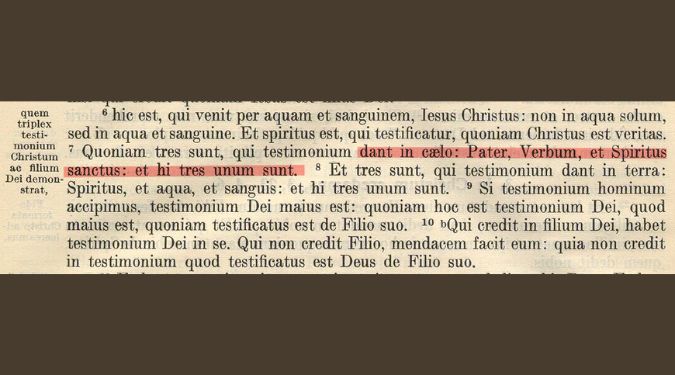Yea, he shall see that even the wise die, the fool and the stupid alike must perish and leave their wealth to others. Their graves are their homes for ever, their dwelling places to all generations, though they named lands their own. Man cannot abide in his pomp, he is like the beasts that perish. Psalm 49:10-12 RSV
One cannot be blamed for feeling a bit troubled after reading descriptions of death in the Psalms. It cannot be said that a belief in an afterlife and immortality of the soul is expressed in that book. What are we to make of this?
Sheol
The ancient Hebrews believed that a person descended into an underworld called “Sheol” after death. Sheol, שְׁאוֹל in Hebrew, is pronounced sheh-OLE in English and is used sixteen times in the Psalms. See Psalm 6:5; 9:17; 16:10; 18:5; 30:3; 31:17; 49:14 (2x); 49:15; 55:15; 86:13; 88:3; 89:48; 116:3; 139:8; and 141:7.
In at least five other instances, the Psalmists use a word for “Pit”, שַׁחַת (SHAKH-ath) for death. See Psalm 16:10; 30:9; 49:9; 55:23 and 103:4.
We see that in the Psalms, man is like the beasts that perish (49:12). The dead in Sheol don’t remember God or give him praise (6:4-5; 30:9; 88:5,10 ) and do not remember God’s works and his love (88:12). In Sheol, they are forsaken (88:5). Sheol is dark and deep (88:6) and is a land of forgetfulness (88:10). They will never see the light there (49:19). In Sheol, man’s plans perish (146:4).
Divine Pedagogy
The lack of an expression of belief in the immortality of the soul in the Psalms, and indeed in the Old Testament, is often explained by a concept called “Divine Pedagogy”, the idea that God gradually taught and led his chosen people for thousands of years until His revelation in Jesus Christ, in the fullness of time. Pope Benedict summarized this quite well in his Apostolic Exhortation, Verbum Domini:
“…it must be remembered first and foremost that biblical revelation is deeply rooted in history. God’s plan is manifested progressively and it is accomplished slowly, in successive stages and despite human resistance. God chose a people and patiently worked to guide and educate them. “ Pope Benedict XVI, Apostolic Exhortation, Verbum Domini 42 (2010)
Why?
The famous Christian author C.S. Lewis, in his book, “Reflections on the Psalms” noticed something odd, however:
“…there were nations close to the Jews whose religion was overwhelmingly concerned with the afterlife. In reading about ancient Egypt one gets the impression of a culture in which the main business of life was the attempt to secure the well-being of the dead. It looks as if God did not want the chosen people to follow that example. We may ask why.” (Lewis 39)
Cultures close to that of the Jews often had highly developed concepts of the afterlife and of the immortality of the soul. Why not the Jews? Why did the Jews seem to lag behind their pagan contemporaries in this regard?
An Appetite for God
Lewis posits that God desired to first develop in His Chosen People an “appetite for God” and he uses this wonderful phrase at least twice in his book, “Reflection on the Psalms”. Upon reading the 150 psalms one cannot escape from noticing that they stress at least two things in this regard.
First, there is a consistent emphasis on praising God, on acknowledging the truth of His Perfections. The Hebrew verb yadah ( יָדָה “yaw-DAW”), meaning to throw or to cast, is used about 64 times in the Psalms to mean “to praise” (Wigram 499-500). The Hebrew verb halal ( הָלַל, “haw-LAL” ), meaning to shine, and its noun cognate are used about 93 times to mean praise in the Psalms (Wigram 366-367, 1337).
Let everything that breathes praise the Lord. Hallelujah! Psalm 150:6 HCSB
Secondly, the Psalms often express an intense longing to be in God’s presence. Here are some poignant examples:
As the deer pants for streams of water, so my soul pants for you, my God. Psalm 42:1 NIV
I have asked one thing from the Lord; it is what I desire: to dwell in the house of the Lord all the days of my life, gazing on the beauty of the Lord and seeking Him in His temple. Psalm 27:4 HCSB
Conclusion
So why did God, in his Divine Pedagogy, not have his people follow the example of surrounding pagans with respect to belief in an afterlife? Lewis sums it up nicely:
“It is surely, therefore, very possible that when God began to reveal Himself to men, to show them that He and nothing else is their true goal and the satisfaction of their needs, and that He has a claim upon them simply by being what He is, quite apart from anything He can bestow or deny, it may have been absolutely necessary that this revelation should not begin with any hint of future Beatitude or Perdition. These are not the right point to begin at. An effective belief in them, coming too soon, may even render almost impossible the development of (so to call it) the appetite for God;“..It is even arguable that the moment ‘Heaven’ ceases to mean union with God and ‘Hell’ to mean separation from Him, the belief in either is a mischievous superstition…” (Lewis 40-41)
Heaven is a profound union with God and that lesson comes first in the Divine Pedagogy.
Works Cited
Lewis, C. S. Reflections on the Psalms. New York, Harcourt, Brace and Company, 1958.
“Verbum Domini: Post-Synodal Apostolic Exhortation on the Word of God in the Life and Mission of the Church (30 September 2010) | BENEDICT XVI.” The Holy See, 30 September 2010, https://www.vatican.va/content/benedict-xvi/en/apost_exhortations/documents/hf_ben-xvi_exh_20100930_verbum-domini.html. Accessed 21 October 2024.
Wigram, George V. The Englishman’s Hebrew Concordance of the Old Testament: Coded with the Numbering System from Strong’s Exhaustive Concordance of the Bible. Hendrickson Pub., 1996.



